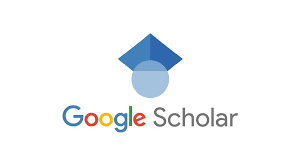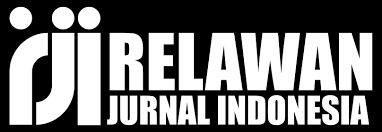Analisis Pengaruh Celebrity Endorsement Dan Electronic Word Of Mouth (E-Wom) Terhadap Purchase Intention Melalui Brand Hate
(Studi Kasus Pada Starbucks Di Kota Bekasi)
DOI:
https://doi.org/10.61722/jiem.v2i8.2301Keywords:
Celebrity endorsement, Electronic word of mouth, Brand hate, Purchase intentionAbstract
This study aims to analyze the effect of Celebrity endorsement and Electronic word of mouth (e-WOM) on Purchase intention, as well as investigating the role of Brand hate as an intervening variable. investigate the role of Brand hate as an intervening variable. This research conducted at Starbucks in Bekasi City using a quantitative approach. quantitative approach. The sample of this study consisted of 100 respondents, with primary data obtained through distributing questionnaires to consumers. data obtained through distributing questionnaires to Starbucks consumers in Bekasi through social media. Bekasi through social media. The data was analyzed using the SPSS version 29 application with classical assumption analysis, hypothesis testing, path analysis, and sobel test. The results showed that celebrity endorsement and e-WOM had no effect on brand hate. effect on brand hate, but both have a positive and significant effect on purchase intention. significant on purchase intention. Conversely, brand hate has a negative and significant effect on purchase intention. As an intervening variable intervening variable, brand hate cannot mediate the relationship between celebrity endorsement, e-WOM, and purchase intention.
References
Al Qaimari, R., Al Hassan, M., Al Dmour, H., & Aloqaily, A. (2021). The effect of the electronic word of mouth on purchase intention via the brand image as a mediating factor: an empirical study. International Journal of Networking and Virtual Organisations, 24(2), 182. https://doi.org/10.1504/IJNVO.2021.10037256
Arifani, V. M., & Haryanto, H. (2018). Purchase intention: implementation theory of planned behavior (Study on reusable shopping bags in Solo City, Indonesia). IOP Conference Series: Earth and Environmental Science, 200, 012019. https://doi.org/10.1088/1755-1315/200/1/012019
DEMİRAĞ, B., & ÇAVUŞOĞLU, S. (2020). Marka Kaçınması, Marka Nefreti ve Satın Alma Niyeti Arasındaki İlişkinin İncelenmesi: Spor Giyim Tercih Eden Tüketicilere Yönelik Bir Araştırma. Alanya Akademik Bakış, 4(3), 577–602. https://doi.org/10.29023/alanyaakademik.707211
Fetscherin, M. (2019). The five types of brand hate: How they affect consumer behavior. Journal of Business Research 101, 116–127. https://doi.org/10.1016/j.jbusres.2019.04.017
Ghozali, I. (2016). Aplikasi Analisis Multivariete Dengan Program IBM SPSS 23 (Edisi 8). Univ. Diponegoro Press.
Hasna, S., & Irwansyah, I. (2019). ELECTRONIC WORD OF MOUTH SEBAGAI STRATEGI PUBLIC RELATION DI ERA DIGITAL. Interaksi: Jurnal Ilmu Komunikasi, 8(1), 18. https://doi.org/10.14710/interaksi.8.1.18-27
Hendro, H., & Keni, K. (2020). Ewom dan trust sebagai prediktor terhadap purchase intention: Brand image sebagai variabel mediasi. Jurnal Komunikasi, 12(2), 298–310.
Jabeen, F., Kaur, P., Talwar, S., Malodia, S., & Dhir, A. (2022). I love you, but you let me down! How hate and retaliation damage customer-brand relationship. Technological Forecasting and Social Change, 174, 121183. https://doi.org/10.1016/j.techfore.2021.121183
Kotler, P., Kartajaya, H., & Setiawan, I. (2021). Marketing 5.0: Technology for Humanity. Wiley. https://books.google.co.id/books?id=ANfzyQEACAAJ
Kotler, P., & Keller, K. L. (2010). Manajemen Pemasaran: Vol. Jilid 1 (13th ed). Erlangga.
Kucuk, S. U. (2019). What Is Brand hate? In Brand hate (pp. 23–48). Springer International Publishing. https://doi.org/10.1007/978-3-030-00380-7_2
Merliani, N. N., Mangantar, M., & Arie, F. V. (2022). Analisis Celebrity Endorser Dalam Menarik Minat Beli Konsumen Pada Pengguna Media Sosial Instagram (Studi Kasus Pada Mahasiswa Fakultas Ekonomi Dan Bisnis Universitas Sam Ratulangi Manado). Jurnal EMBA: Jurnal Riset Ekonomi, Manajemen, Bisnis Dan Akuntansi, 10(1), 412–418.
Money, R. B., Shimp, T. A., & Sakano, T. (2006). Celebrity endorsements in Japan and the United States: Is Negative Information All That Harmful? Journal of Advertising Research, 46(1), 113–123. https://doi.org/10.2501/S0021849906060120
Nurdin, I., & Hartati, S. (2019). METODOLOGI PENELITIAN SOSIAL.
Ramadhani, A., & Insani, N. (2023). Celebrity endorsements and Brand Attitudes Toward Buying Interest. International Journal of Social Science and Business, 7(2), 305–312. https://doi.org/10.23887/ijssb.v7i2.47383
Shafira, A., & Ferdinand, A. T. (2017). Analisis pengaruh celebrity endorser dan keinovatifan produk terhadap keputusan pembelian, serta citra merek dan nilai utilitarian sebagai variabel intervening.(Studi pada pengguna provider seluler xl di semarang). Diponegoro Journal of Management, 6(3), 46–60.
Shao, Z., Ho, J. S. Y., Tan, G. W.-H., Ooi, K.-B., Sarker, P., & Dwivedi, Y. K. (2024). How celebrity attributes damage customer–brand relationship in live streaming commerce: a dark side. Journal of Brand Management. https://doi.org/10.1057/s41262-024-00362-z
Sharma, I., Jain, K., & Gupta, R. (2021). The power to voice my hate! Exploring the effect of brand hate and perceived social media power on negative eWOM. Journal of Asia Business Studies, 16(4), 652–675. https://doi.org/10.1108/JABS-10-2020-0423
Sugiyono. (2019). Metodelogi Penelitian Kuantitatif dan Kualitatif Dan R&D. ALFABETA.
Tanjung, R., & Keni, K. (2023). Pengaruh Celebrity Endorser dan E-WOM terhadap Purchase intention Produk Skincare di Jakarta dengan Brand Trust sebagai Variabel Mediasi. Journal Management, Business, and Accounting, 22(1), 88–102.
Yang, J., & Mundel, J. (2021). Effects of brand feedback to negative eWOM on brand love/hate: an expectancy violation approach. Journal of Product & Brand Management, 31(2), 279–292. https://doi.org/10.1108/JPBM-05-2020-2900
Downloads
Published
Issue
Section
License
Copyright (c) 2024 JURNAL ILMIAH EKONOMI DAN MANAJEMEN

This work is licensed under a Creative Commons Attribution-ShareAlike 4.0 International License.













